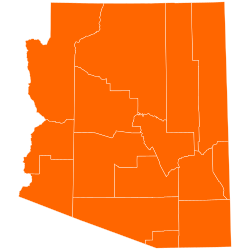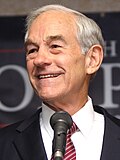Project White House
The small alternative newspaper Tucson Weekly , for the second election in a row, has sponsored an event called "Project White House" [7] in which it gets as many ordinary citizens on the ballot as it possibly can. Afterward, a series of "reality show style" competitions occurred, including candidate meet-and-greets, and two televised debates which were sponsored by the Tucson Weekly, a local public-access television show called Illegal Knowledge, and local public television stations. [8]
The two debates took place on February 18 and February 19, 2012, both were commercial-free, one hour long each, and both aired on Access Tucson while they were streamed live on the internet. [9] [10] [11] [12] Both debates were produced in conjunction with Project White House and Jim Nintzel of the Tucson Weekly.
The first debate, held on the 18th at 8 pm MST, produced by Illegal Knowledge [9] and hosted by Dave Maass of San Diego CityBeat , [13] had nine participants, composed of eight lesser known Republican candidates (Donald Benjamin, Simon Bollander, Cesar Cisneros, Kip Dean, Sarah Gonzales, Al "Dick" Perry, Charles Skelley and Jim Terr) and one Green Party candidate (Michael Oatman). [10] A press release regarding this first debate was distributed which invited all candidates listed on either Republican or Green Party ballots in Arizona to the first debate, [14] although none of the major Republican or Green Party candidates appeared.
The second debate, held on the 19th at 7pm MST, produced by Access Tucson [11] and hosted by both Dave Maass of San Diego CityBeat and Amanda Hurley of the University of Arizona School of Journalism, [13] was restricted only to Republican candidates and featured seven of the eight lesser known Republican candidates from the previous night (less Cesar Cisneros). [12]
There was a third Arizona debate which took place in Mesa, AZ on February 22, 2012, but was not associated with Project White House and had only invited the four major Republican candidates to participate. [15] [16]
Two lesser known candidates appearing in the first debates, Sarah Gonzales (who placed sixth) and Michael Oatman (who placed tied for third), placed ahead of their better known Republican and Green Party counterparts (Buddy Roemer and Gerard Davis respectively) in the Arizona Presidential Preference Election Results from February 28, 2012. [17]





